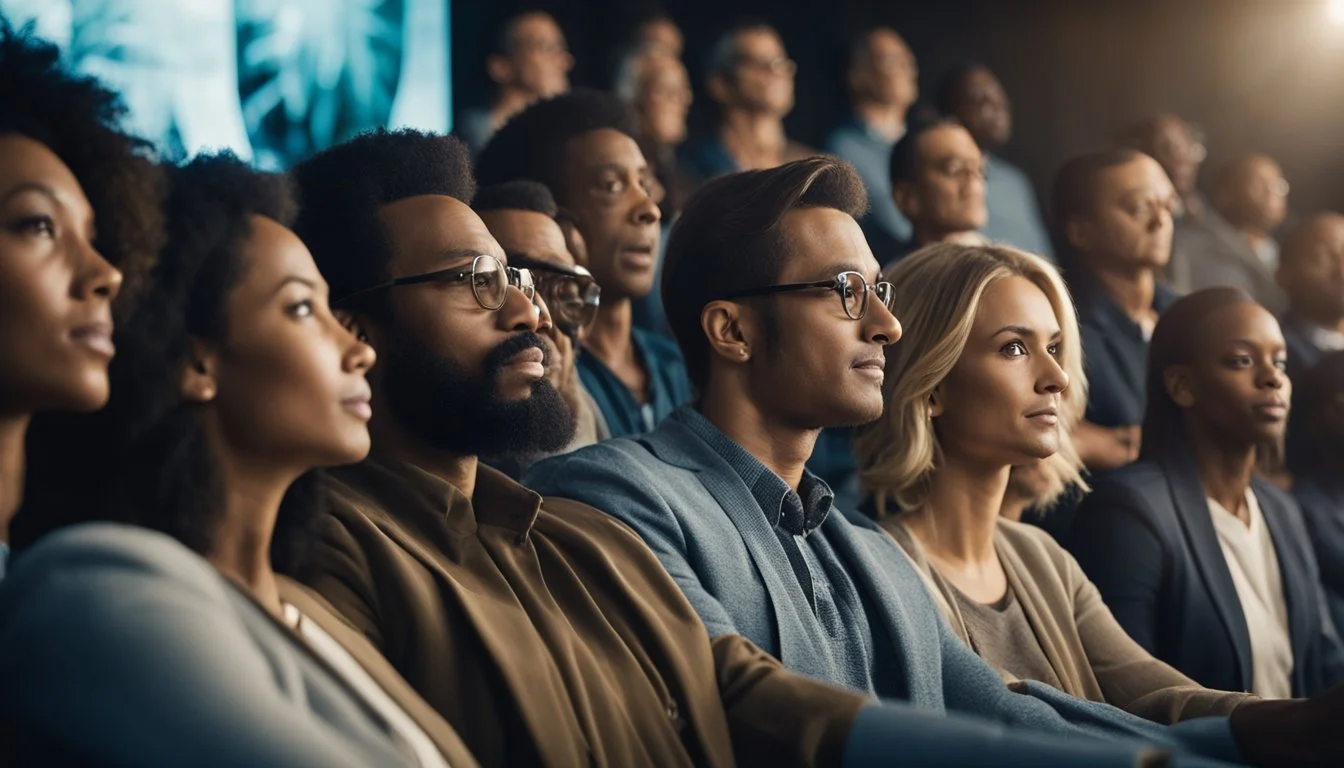6 Documentaries That Challenge the Notion of Authenticity
Exploring Truth and Perception
Documentary filmmaking has evolved significantly over the years, embracing a wide array of techniques and perspectives to offer audiences a unique insight into reality. As part of this evolution, some documentaries deliberately blur the lines between truth and performance to challenge conventional ideas of authenticity in storytelling. These films question the nature of truth by exploring how reality is constructed and perceived through the lens of the camera.
This article explores documentaries that invite viewers to reconsider their perceptions of authenticity and reality within the documentary format. By examining how filmmakers manipulate real life to craft compelling narratives, these works encourage a deeper reflection on the complexities of representing truth in cinema. Through a blend of artistry and factual storytelling, they provoke thoughtful engagement with the concept of authenticity.
1) 'Exit Through the Gift Shop' by Banksy (2010)
'Exit Through the Gift Shop,' directed by the elusive street artist Banksy, offers an intriguing exploration of street art and its intersection with fame and commerce. The documentary centers on Thierry Guetta, a French immigrant in Los Angeles, who obsessively films prominent street artists, capturing raw and unfiltered moments of their creative processes.
Unexpectedly, the storyline shifts when Guetta becomes an artist known as Mr. Brainwash. His rapid rise to fame raises questions about authenticity and the commercialization of art. Through this narrative, Banksy subtly critiques the art world and its increasing focus on profit over genuine expression.
By presenting real-life events with a flair for unpredictability, the film blurs the line between documentary and art. The question of whether Guetta's transformation is real or part of an elaborate artistic hoax remains a subject of debate. This ambiguity challenges viewers to consider the nature of art and the forces that shape its perception.
Explore more about 'Exit Through the Gift Shop' here.
2) 'F for Fake' by Orson Welles (1973)
"F for Fake," directed by Orson Welles, is a fascinating exploration of the world of forgery and deception. The film blurs the line between truth and illusion by focusing on art forger Elmyr de Hory and writer Clifford Irving, who famously fabricated a biography of Howard Hughes.
Welles combines documentary footage with staged scenes, adding his own commentary and narrative style. This method creates a unique cinematic experience that challenges viewers to question the nature of authenticity in art and storytelling.
The film is notable for its innovative approach, using elements of both documentary and fiction. Welles's iconic voice and on-screen presence add depth, engaging audiences in a discussion about the boundaries of reality and illusion.
By weaving together real and staged material, Welles pushes the boundaries of traditional filmmaking techniques, making "F for Fake" a pioneering work. This film not only critiques but also celebrates the art of deception, making it a significant contribution to discussions about truth in art.
For further details, visit the Wikipedia page.
3) 'Catfish' by Ariel Schulman and Henry Joost (2010)
'Catfish’ is an intriguing documentary directed by Ariel Schulman and Henry Joost. It presents a story about the complexities of online relationships. Centered around Nev Schulman, Ariel's brother, the film explores an online friendship that leads to unexpected truths.
The film presents themes of identity and deception in the digital age. Viewers follow Nev's journey as he uncovers the realities behind the persona of a woman he met on social media. This journey highlights modern challenges in discerning truth from fiction.
Schulman and Joost employ a direct, observational style, heightening the film's authenticity. This approach allows audiences to feel directly engaged with the unfolding narrative. The story's twists raise questions about trust and reality in online interactions.
After its release, 'Catfish' generated conversations about the authenticity of the film's events, adding another layer to its impact. It plays a crucial role in discussions around the transparency of digital communication.
The film’s title has since entered popular culture, signifying online deception. This speaks volumes about its influence beyond the screen. Learn more about 'Catfish' on IMDb.
4) 'The Act of Killing' by Joshua Oppenheimer (2012)
'The Act of Killing' challenges traditional documentary storytelling by engaging with the perpetrators of the Indonesian mass killings of 1965-66. Directed by Joshua Oppenheimer, the film invites these individuals to reenact their crimes in whatever cinematic forms they choose.
The result is a haunting exploration of memory, guilt, and the surreal world these perpetrators inhabit. This approach raises questions about authenticity and representation, as the reenactments blur the lines between reality and performance.
Oppenheimer’s work forces viewers to confront uncomfortable truths about history and human nature. His method of involving the subjects in their narrative opens a dialogue about the power dynamics in documentary filmmaking.
Executive produced by Werner Herzog and Errol Morris, the film has been heralded as a groundbreaking contribution to the genre. It provides a unique perspective on historical events while questioning conventional documentary practices.
For more information, visit Wikipedia or IMDB.
5) 'Room 237' by Rodney Ascher (2012)
Rodney Ascher's 'Room 237' is a documentary that explores the numerous theories surrounding Stanley Kubrick's iconic horror film, 'The Shining'. Viewers are introduced to interpretations offered by five individuals who dissect and discuss supposed hidden messages within the movie's setting, the Overlook Hotel.
The film operates as both a work of documentary and a form of film criticism, challenging the boundaries between objective analysis and subjective experience. Ascher's approach allows these speculative theories to take center stage, examining how viewers project personal beliefs and ideas onto works of art.
Critics have noted the unique narrative style of 'Room 237', as it refrains from direct commentary, instead allowing participants' interpretations to drive the narrative. This structure invites the audience to question what constitutes authentic analysis and whether these interpretations enhance the film's legacy or misguide its understanding.
The documentary engages viewers in a conversation about interpretation, authorship, and the role of audience perception in film. Those intrigued by how creativity, speculation, and analysis intersect will find 'Room 237' to be a thought-provoking exploration of authenticity in storytelling.
For more about 'Room 237', visit Wikipedia.
6) 'This Is Not a Film' by Jafar Panahi (2011)
This Is Not a Film offers a compelling exploration of personal and political expression under censorship. Created by the Iranian director Jafar Panahi, the film documents his life while under house arrest in Tehran. Despite being banned from making films, Panahi uses a digital camera and an iPhone to capture his daily existence.
The film provides insight into the struggles of a filmmaker silenced by his government. Smuggled to the Cannes Film Festival inside a birthday cake, it highlights both the absurdity and resilience tied to Panahi's defiance. The footage features moments of introspection, illustrating his enduring commitment to storytelling.
Captured with minimal production tools, this clandestine project challenges traditional filmmaking norms. It blurs the line between the real and the staged, asking profound questions about what constitutes a film. Panahi's use of the medium as resistance underscores the enduring power of cinema to challenge and provoke.
Learn more about 'This Is Not a Film' on Wikipedia.
Understanding Authenticity
Authenticity in media reflects the ongoing tension between what is real and what is perceived. This section explores its evolution and examines how perception can alter reality.
The Evolution of Authenticity in Media
Authenticity in media has continuously evolved, particularly with advances in technology and changes in societal expectations. Early forms of media were often limited by the technology of the time, such as black-and-white film and silent movies. These early productions often left much to the viewer's imagination, making 'authenticity' a more subjective experience.
As technology progressed, media became more sophisticated, introducing sound, color, and eventually digital effects. This has complicated the viewer's perception, as visual and auditory cues can be manipulated to enhance or distort the truth. Documentary filmmakers began questioning how to present truthfully while acknowledging their own influence on the narrative. This recognition of the creator’s presence challenges the traditional notions of authenticity within documentaries.
Perception Versus Reality
The relationship between perception and reality is a key focal point in discussions about authenticity. Documentary films often highlight this tension as audiences may perceive filmed events as truth, even when editing or performance affects the narrative. Filmmakers naturally bring their biases, consciously or not, influencing what they show and how they show it.
The viewer's preconceived notions further complicate this. Audiences bring their experiences and biases, influencing their interpretation of what is seen. This means that what is 'authentic' can vary widely between individuals. In practice, the authenticity of a documentary is not solely determined by its factual content but also by how it resonates with the viewer's perception of reality.
Impact of Documentaries on Perceptions
Documentaries serve as powerful tools for shaping public opinion and engaging audiences in meaningful social discourse. They provide insights into complex issues, challenge existing beliefs, and foster deeper understanding.
Influence on Public Opinion
Documentaries often have a profound effect on public opinion by presenting real-world issues in compelling ways. When audiences connect with personal stories and raw footage, they are prompted to question preconceived notions. For example, films that explore the impact of environmental change often inspire viewers to consider their role in addressing ecological challenges.
On topics such as health, social justice, and economics, documentaries can shift public perception by providing new evidence or perspectives. The ability to capture authentic experiences allows documentaries to reach beyond headlines, delivering a more nuanced view of issues.
Role in Social Discourse
In addition to influencing opinions, documentaries play a crucial role in social discourse. They open avenues for conversations on pressing issues and encourage collective engagement. As filmmakers highlight diverse voices and narratives, documentaries foster an environment for debate and dialogue.
This inclusive approach helps bridge gaps between communities by promoting empathy and understanding. When a documentary effectively engages its audience, it not only informs but also empowers individuals to participate in ongoing social movements and discussions, transcending barriers and fostering connections across different demographics.



